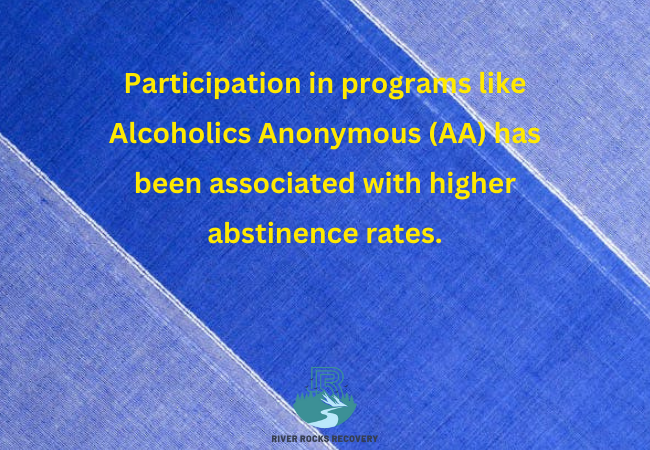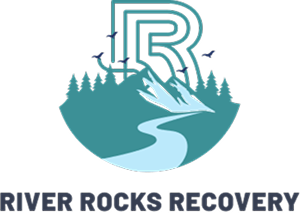Overcoming alcohol addiction is more than just quitting drinking—it’s about understanding the root causes of addiction, learning new coping strategies, and developing a healthier lifestyle. While detox helps the body remove alcohol, therapy plays a vital role in addressing the emotional, psychological, and behavioral aspects of addiction.
In this in-depth guide, we’ll explore:
- Why therapy is a crucial part of alcohol rehab
- The different types of therapy used in addiction treatment
- The role of therapy in managing cravings and preventing relapse
- How therapy supports mental health and emotional healing
- What to expect from therapy in an alcohol rehab program
Why Therapy is Crucial in Alcohol Rehab
Alcohol addiction is often driven by deeper emotional and psychological struggles. People may turn to alcohol as a way to cope with stress, trauma, or mental health issues. Simply removing alcohol from a person’s system does not resolve these underlying problems, which is why therapy is an essential part of treatment.
Key Benefits of Therapy in Alcohol Rehab:
- Identifies the root causes of addiction and helps individuals process them.
- Teaches healthier coping skills for dealing with stress, anxiety, and triggers.
- Helps address co-occurring mental health disorders such as depression and PTSD.
- Supports personal growth and self-awareness, fostering long-term recovery.
- Strengthens relapse prevention skills to help maintain sobriety.
- Builds healthy relationships and communication skills for long-term success.
Therapy provides a structured, safe space for individuals to explore their emotions, develop self-confidence, and learn new life skills.
Types of Therapy Used in Alcohol Rehab
At River Rocks Recovery, we utilize evidence-based therapy approaches to help individuals build a strong foundation for long-term sobriety.
1. Individual Therapy (One-on-One Counseling)
Individual therapy is a private and personalized counseling session where individuals can discuss deep-rooted issues, emotional challenges, and personal struggles with a licensed therapist.
How Individual Therapy Helps:
- Uncovers triggers and past traumas that may contribute to alcohol use.
- Develops personalized coping strategies for handling stress and cravings.
- Provides emotional support to help individuals process their experiences.
- Establishes long-term recovery goals and relapse prevention strategies.
2. Cognitive Behavioral Therapy (CBT) for Addiction Recovery
CBT is one of the most widely used therapies in alcohol rehab. It helps individuals identify negative thought patterns and behaviors that contribute to addiction and replace them with healthier coping mechanisms.
How CBT Works in Alcohol Rehab:
- Teaches individuals how to recognize and change self-destructive thoughts.
- Encourages healthy habits and behaviors to replace drinking.
- Helps develop problem-solving skills to handle stress effectively.
- Improves emotional regulation and impulse control.
For example, if someone drinks to cope with anxiety, CBT helps them find alternative coping methods, such as deep breathing exercises, journaling, or engaging in physical activities.
3. Dialectical Behavior Therapy (DBT) for Emotional Regulation
DBT is a specialized form of therapy designed to help individuals with intense emotions, impulsivity, or self-destructive behaviors.
How DBT Supports Alcohol Addiction Recovery:
- Teaches mindfulness techniques to manage emotional distress.
- Encourages self-acceptance and self-awareness to reduce guilt and shame.
- Provides emotional regulation strategies to prevent relapse.
- Helps individuals handle difficult relationships in a healthier way.
DBT is especially effective for individuals who struggle with co-occurring mental health conditions, such as bipolar disorder, PTSD, or severe anxiety.
4. Group Therapy and Peer Support
Group therapy is an essential part of alcohol rehab treatment in Ohio, allowing individuals to share their experiences, learn from others, and build a support system.
The Benefits of Group Therapy in Alcohol Rehab:
- Reduces isolation by providing a community of people in recovery.
- Encourages peer accountability and support.
- Provides multiple perspectives on coping with addiction.
- Teaches social skills and conflict resolution techniques.
Group therapy is often combined with 12-step programs like Alcoholics Anonymous (AA), SMART Recovery, or Refuge Recovery, offering additional peer-based support.
5. Family Therapy for Rebuilding Relationships
Alcohol addiction affects not just the individual but also their loved ones. Family therapy helps repair relationships, improve communication, and educate families on addiction.
How Family Therapy Helps in Alcohol Rehab:
- Teaches families how to support their loved one’s recovery.
- Resolves past conflicts that may have contributed to addiction.
- Encourages healthy boundaries and accountability.
- Rebuilds trust and strengthens relationships.
Having a strong support system at home can significantly increase the chances of long-term sobriety.

How Therapy Helps Manage Cravings and Prevent Relapse
One of the biggest challenges in recovery is avoiding relapse. Therapy provides the tools needed to manage cravings and maintain sobriety.
1. Identifying Triggers and High-Risk Situations
Therapy helps individuals recognize what situations, emotions, or environments may lead to relapse.
2. Developing Healthy Coping Strategies
Instead of drinking, individuals learn new ways to cope with stress, such as:
- Exercise
- Meditation
- Creative outlets like art or music
- Talking to a sponsor or therapist
3. Strengthening Mental Health
Since anxiety, depression, and PTSD often contribute to alcohol use, therapy helps individuals manage underlying mental health conditions.
4. Providing Long-Term Support
Continued therapy sessions in an Outpatient Program in Ohio (OP) help reinforce relapse prevention techniques.
What to Expect from Therapy in Alcohol Rehab
Therapy is integrated into every stage of alcohol rehab, from detox to outpatient care.
1. During Detox:
- Emotional support from therapists and counselors.
- Managing anxiety and withdrawal symptoms.
2. In Partial Hospitalization Program (PHP) or Intensive Outpatient Program (IOP):
- Regular therapy sessions focused on healing past trauma.
- Development of coping skills for daily life challenges.
3. In Outpatient Program (OP) and Aftercare:
- Ongoing therapy to reinforce sobriety.
- Support groups and peer accountability.
Each phase of therapy is designed to help individuals grow stronger in their sobriety.
How River Rocks Recovery Can Help
At River Rocks Recovery, we believe that therapy is the key to lasting recovery. Our evidence-based treatment programs provide individuals with the counseling, support, and tools they need to maintain sobriety.
Our therapy-focused programs include:
- Alcohol Rehab Treatment in Ohio – Comprehensive care for long-term recovery.
- Partial Hospitalization & Intensive Outpatient Programs – Flexible treatment options.
- Relapse Prevention & Aftercare Support – Continued therapy and peer support.
At River Rocks Recovery, we are dedicated to helping individuals heal and grow through comprehensive, therapy-based treatment programs. Whether you need intensive inpatient care, outpatient support, or long-term relapse prevention strategies, our team is here to guide you every step of the way.
Conclusion
Overcoming alcohol addiction requires more than just quitting drinking—it requires healing the mind, rebuilding emotional strength, and learning new coping strategies. Therapy plays a critical role in this process, helping individuals understand the root causes of their addiction, develop relapse prevention skills, and strengthen mental health.
Through individual counseling, group therapy, cognitive-behavioral therapy (CBT), dialectical behavior therapy (DBT), and family therapy, individuals in recovery can build a strong foundation for lifelong sobriety. Therapy provides the tools and support needed to navigate challenges, avoid relapse, and rebuild a fulfilling life free from alcohol dependence.
If you or a loved one is struggling with alcohol addiction, don’t wait to seek help. Call River Rocks Recovery at 888.905.6281 today to speak with a recovery specialist. Professional therapy can make all the difference in your recovery journey.
FAQ About Therapy in Alcohol Rehab
Why is therapy important in alcohol rehab?
Therapy helps individuals address the underlying causes of addiction, develop coping strategies, and build a strong foundation for long-term sobriety. Without therapy, the risk of relapse increases because emotional and behavioral triggers remain unaddressed.
What types of therapy are used in alcohol rehab?
Common types of therapy in alcohol rehab include:
- Cognitive Behavioral Therapy (CBT): Identifies and changes negative thought patterns.
- Dialectical Behavior Therapy (DBT): Helps manage emotional distress and impulsivity.
- Individual Therapy: Provides one-on-one support to explore personal struggles.
- Group Therapy: Builds a support system with peers in recovery.
- Family Therapy: Improves relationships and communication with loved ones.
How does therapy help prevent relapse?
Therapy teaches individuals how to:
- Recognize personal triggers and high-risk situations.
- Develop healthy coping skills instead of turning to alcohol.
- Manage stress, anxiety, and depression without substance use.
- Build a strong support network through peer and family support.
Can therapy help with mental health issues in alcohol rehab?
Yes, many individuals in alcohol rehab have co-occurring mental health conditions such as depression, anxiety, or PTSD. Therapy helps treat both addiction and mental health disorders, improving overall well-being and reducing the likelihood of relapse.
How long do therapy sessions last in alcohol rehab?
Therapy duration depends on the treatment program:
- Inpatient Rehab: Daily therapy sessions.
- Partial Hospitalization Program (PHP): Several hours of therapy per day.
- Intensive Outpatient Program (IOP): Multiple therapy sessions per week.
- Outpatient Program (OP): Weekly therapy sessions for long-term support.
What happens after rehab? Does therapy continue?
Yes, after rehab, individuals are encouraged to continue therapy through:
- Outpatient counseling for continued relapse prevention.
- Support groups like Alcoholics Anonymous (AA) or SMART Recovery.
- Family therapy to maintain healthy relationships.





























